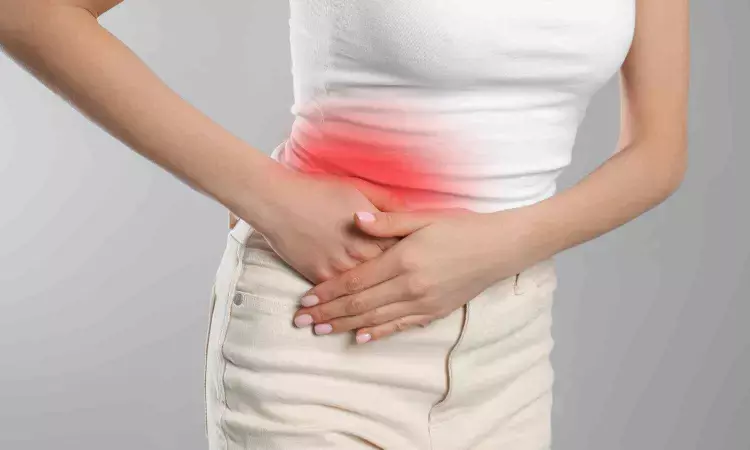- Home
- Medical news & Guidelines
- Anesthesiology
- Cardiology and CTVS
- Critical Care
- Dentistry
- Dermatology
- Diabetes and Endocrinology
- ENT
- Gastroenterology
- Medicine
- Nephrology
- Neurology
- Obstretics-Gynaecology
- Oncology
- Ophthalmology
- Orthopaedics
- Pediatrics-Neonatology
- Psychiatry
- Pulmonology
- Radiology
- Surgery
- Urology
- Laboratory Medicine
- Diet
- Nursing
- Paramedical
- Physiotherapy
- Health news
- Fact Check
- Bone Health Fact Check
- Brain Health Fact Check
- Cancer Related Fact Check
- Child Care Fact Check
- Dental and oral health fact check
- Diabetes and metabolic health fact check
- Diet and Nutrition Fact Check
- Eye and ENT Care Fact Check
- Fitness fact check
- Gut health fact check
- Heart health fact check
- Kidney health fact check
- Medical education fact check
- Men's health fact check
- Respiratory fact check
- Skin and hair care fact check
- Vaccine and Immunization fact check
- Women's health fact check
- AYUSH
- State News
- Andaman and Nicobar Islands
- Andhra Pradesh
- Arunachal Pradesh
- Assam
- Bihar
- Chandigarh
- Chattisgarh
- Dadra and Nagar Haveli
- Daman and Diu
- Delhi
- Goa
- Gujarat
- Haryana
- Himachal Pradesh
- Jammu & Kashmir
- Jharkhand
- Karnataka
- Kerala
- Ladakh
- Lakshadweep
- Madhya Pradesh
- Maharashtra
- Manipur
- Meghalaya
- Mizoram
- Nagaland
- Odisha
- Puducherry
- Punjab
- Rajasthan
- Sikkim
- Tamil Nadu
- Telangana
- Tripura
- Uttar Pradesh
- Uttrakhand
- West Bengal
- Medical Education
- Industry
Routine Abdominal Drain Not Recommended After Laparoscopic Appendectomy for Perforated Appendicitis: Study

Researchers have found in a new study published in BMC Surgery by Hao Lu, Shikuan Li, Dawei Zhang, Shengqiang Wang, Hairui Liu, Chengzhi Wang, and Honghao Peng that there was no clear advantage to routine abdominal drain placement in adults undergoing laparoscopic appendectomy for perforated appendicitis. The authors report that across matched patient groups, use of a drain was associated with longer operative time, extended antibiotic courses, and longer hospital stay, but did not reduce surgical site infection rates. Their findings support current guideline trends that discourage routine drainage, while noting that further multicenter randomized controlled trials are needed for definitive confirmation.
The investigators retrospectively reviewed clinical data from adult patients treated between 2019 and 2024 at Qingdao University’s affiliated hospital, distinguishing those who received an abdominal drain during surgery from those who did not.
They applied propensity score matching to balance baseline characteristics and reduce confounding. After matching, both groups showed similar rates of surgical site infection, indicating no statistically significant benefit from drainage in preventing postoperative infection. On the flip side, the drain group demonstrated longer durations of postoperative antibiotic use, longer hospital stays, and greater operative time. The odds ratio for surgical site infection in drain versus non-drain groups was essentially neutral.
Dr. Shravani Dali has completed her BDS from Pravara institute of medical sciences, loni. Following which she extensively worked in the healthcare sector for 2+ years. She has been actively involved in writing blogs in field of health and wellness. Currently she is pursuing her Masters of public health-health administration from Tata institute of social sciences. She can be contacted at editorial@medicaldialogues.in.
Dr Kamal Kant Kohli-MBBS, DTCD- a chest specialist with more than 30 years of practice and a flair for writing clinical articles, Dr Kamal Kant Kohli joined Medical Dialogues as a Chief Editor of Medical News. Besides writing articles, as an editor, he proofreads and verifies all the medical content published on Medical Dialogues including those coming from journals, studies,medical conferences,guidelines etc. Email: drkohli@medicaldialogues.in. Contact no. 011-43720751


